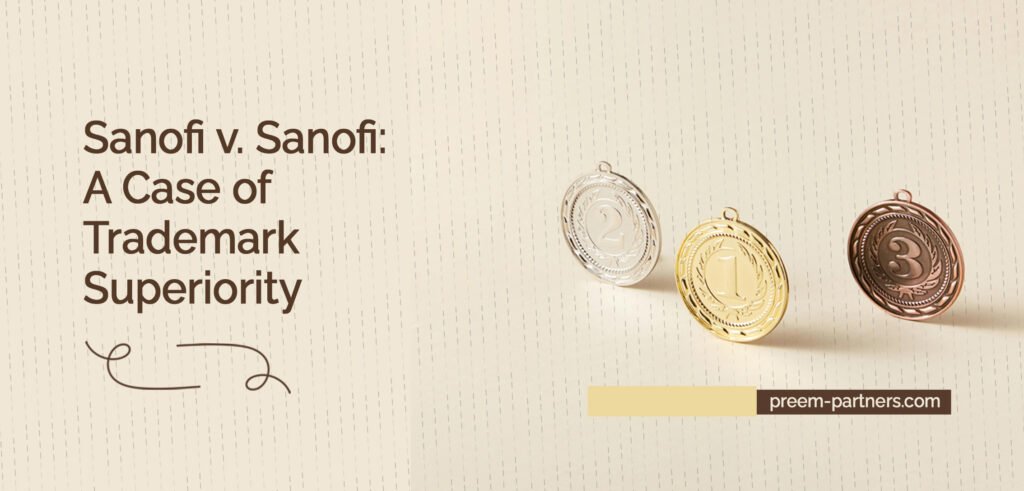
Preem & Partners | 30th April, 2024
On the 13th of August, 2023, the Federal High Court in Abuja, presided over by Justice James Omotosho, ruled on a case concerning the unauthorised use (infringement) of the “Sanofi” trademark by three Nigerian companies registered with the Corporate Affairs Commission (referred to as “CAC” or “the Commission”). Justice Omotosho ordered the cancellation of the registration and use of the “Sanofi” trademark by these Nigerian companies, namely Sanofi Integrated Services Ltd, Sanofi Nigeria Enterprises Limited, and Sanofi Nigeria Enterprise, deeming their use unlawful.
The court’s decision underscored that the inclusion of the term “Sanofi” in their incorporation names, as registered with the CAC, constituted an infringement upon the trademark of Sanofi S.A., a multinational pharmaceutical and healthcare corporation headquartered in Paris, France. This ruling carries significant implications for the business landscape in Nigeria.
Sanofi S.A. has been conducting its business operations since 1973. In 1987, the company officially trademarked the name “SANOFI” along with its associated device (logo) through registration with the Nigeria Trademark Registry. In 1999, Sanofi S.A. established its subsidiary, Sanofi-Aventis Nigeria Limited, through registration with CAC. The company subsequently rebranded to Sanofi S.A. in 2011.
Conversely, the use of the SANOFI trademark in relation to Sanofi Integrated Services Limited, Sanofi Nigeria Enterprises Limited, and Sanofi Nigeria Enterprises (collectively referred to as the “Sanofis”) dates back to 1992, when Sanofi Nigeria Enterprises was incorporated. Subsequent to this, Sanofi Integrated Services Ltd was established in 2011, followed by the incorporation of Sanofi Nigeria Enterprises Limited in 2013.
In 2021, Sanofi S.A. became aware of the Sanofis’ unauthorised use of the SANOFI trademark within their company names and business operations. Consequently, Sanofi S.A. petitioned CAC requesting that the Sanofis voluntarily alter their organisational names. Upon review, the Commission upheld Sanofi S.A.’s request and directed the Sanofis to change their names, citing the infringement of the well-known registered trademark SANOFI, which belonged to Sanofi S.A. However, the Sanofis declined to comply with the Commission’s directive.
In the same year, Sanofi S.A. issued cease-and-desist letters to the Sanofis, highlighting that their use of the SANOFI trademark could potentially mislead the public into believing there was an association or affiliation between Sanofi S.A. and the Sanofis. Despite these warnings, the Sanofis remained unmoved, prompting Sanofi S.A. to initiate legal proceedings against them for trademark infringement at the Abuja Federal High Court.
The Court’s decision, following a thorough examination of the arguments and evidence presented, ruled in favour of Sanofi S.A. against the Sanofis, affirming that the latter had indeed infringed upon the established trademark of Sanofi S.A. This judgment, grounded in various legal principles and rationale, not only awarded damages against the Sanofis but also directed the Commission to revoke or cancel the registration of the Sanofis from its Registers if they failed to apply for name changes within two weeks of the judgment date. This directive was in accordance with section 30(4) of the Companies and Allied Matters Act, 2020 (referred to as “the CAMA”).
Justice Omotosho’s judgment acknowledged the prior registration of the SANOFI trademark owned by Sanofi S.A., predating the adoption of business names by the Sanofis. This precedence accorded Sanofi S.A. exclusive rights and legal protections pertaining to the use of the name within the pharmaceutical and healthcare industry, based on the “first to file” principle.
Furthermore, the court reiterated the significance of trademarks over business names or CAC registrations, emphasising that trademarks signify more than mere name identifiers. They represent a business’s accumulated reputation and the trust it has built over time. Allowing unchecked use of potentially and actual misleading names undermines the protective intent of trademark law.
The decision carries significant implications for the Nigerian business environment in the following ways.
1. The decision reaffirms the longstanding legal principle that including a name or phrase of a registered trademark in CAC registration can constitute trademark infringement.
2. The decision highlights the importance of conducting trademark searches and investigations before selecting names and phrases for reservation and registration with CAC to avoid potential conflicts within the trademarks within the same industry. This necessity is supported by Section 852(1)(d) of the CAMA, which underscores the precedence of trademark registration over CAC registration.
3. The judgment dispels the misconception that simply using a name in CAC registration or creating a unique product, logo, or slogan grants protection, emphasizing that registration with the trademark registry is imperative for legal protection. As Nigerian trademark law follows the principle of first registration and grants protection to the initial registrant, timely registration is essential to prevent innocent infringement – which, by itself, is not a defence in copyright infringement cases.
4. Among other implications, the decision establishes a precedent for trademark holders to petition the CAC for the deregistration of business entities whose names infringe upon their trademarks.
The decision underscores that given Sanofi S.A.’s widespread recognition and established reputation, any resemblance in name to SANOFI by a third party may mislead the public, thus constituting infringement. The findings in the decision align with previous rulings in trademark infringement cases such as Virgin Enterprises Ltd. v. Richday Beverages (Nig.) Ltd. (2009) LPELR-8187(CA), Alliance Int’l Ltd. v. Saam Kolo Int’l Enterprises Ltd. (2022) LPELR-57984(SC), and Morison Industries PLC v. CPL Industries Ltd. (2021) LPELR-52981(CA).
A protected trademark represents an exclusive intellectual property right and safeguarding this right is essential for any brand or business entity. The significance of trademark protection extends beyond mere legalities. It holds great importance for various reasons, particularly in strategic business planning, as intellectual property considerations and valuations serve as integral components of overarching business goals. Entrepreneurs, business stakeholders, and investors must adopt a proactive and cautious approach in their naming and logo adoption processes to mitigate the risk of trademark infringement and its consequential implications.
